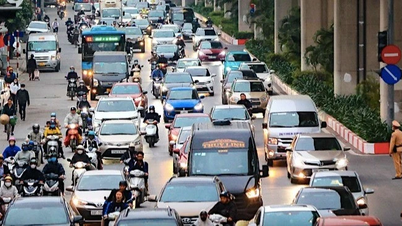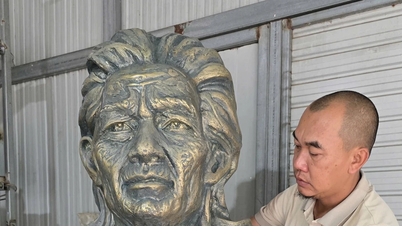A notable amendment in the law recently passed by the National Assembly is the abolition of the death penalty for eight crimes, replacing it with life imprisonment without the possibility of parole.
Specifically, the death penalty will be removed from 8 crimes, including: Crime of activities aimed at overthrowing the people's government; Crime of sabotaging the State's material and technical facilities; Crime of producing and trading in counterfeit medicines and disease prevention medicines; Crime of sabotaging peace and waging aggressive wars; Crime of espionage; Crime of illegally transporting narcotics; Crime of embezzlement of property; Crime of accepting bribes.
Delegates at the law-passing session on the morning of June 25. Photo: Pham Thang
The law also clearly stipulates transitional provisions. Accordingly, death sentences imposed before July 1 for those who committed the above 8 crimes but have not yet been executed will not be executed, and the Chief Justice of the Supreme People's Court will decide to convert the death penalty to life imprisonment.
According to the summary report on receiving and explaining opinions on the draft Law amending and supplementing a number of articles of the Penal Code presented by Minister of Justice Nguyen Hai Ninh, the law amends 38 articles and supplements 1 article.
The Minister of Justice said that the 1985 Penal Code had 44 crimes punishable by death, the 1999 Penal Code had 29 crimes punishable by death, the 2009 amended Penal Code had 22 crimes punishable by death, and the 2015 Penal Code had only 18 crimes punishable by death.
In this amendment to the law, the Government proposes to remove 8 crimes that carry the death penalty. According to international experience, the trend of reducing the death penalty in legal regulations as well as in practice in the world is common. Of the 193 countries that are members of the United Nations, only more than 50 countries have regulations on the death penalty.
The United Nations Covenant on Civil and Political Rights states: "In countries which have not abolished capital punishment, capital punishment may be imposed only for the most serious crimes."
According to the Government, Vietnam is expanding international cooperation extensively in all fields. Building a legal system similar to the majority of countries in the world will contribute significantly to promoting increasingly strong cooperative relations and mutual trust.
According to the Minister of Justice, the abolition of the death penalty for eight crimes still meets the requirements of the fight against crime, while also meeting the process of continuing to reduce the death penalty, as well as the requirements of cooperation and expansion of international relations for national development.
Regarding the crimes of embezzlement and bribery, the Minister of Justice said that after abolishing the death penalty, it is to ensure the recovery of assets obtained from crimes, and at the same time encourage criminals to actively report during the process of solving cases.
The amended law provides that a person sentenced to life imprisonment for embezzlement or bribery can only have his/her sentence reduced if he/she has actively returned at least three-quarters of the embezzled or bribed property and has actively cooperated with authorities in detecting, investigating, and handling the crime or has made great achievements.
Regarding increasing prison sentences and fines for some crimes, Minister Nguyen Hai Ninh said that starting prison sentences will be increased for some crimes related to the environment, food safety, and drugs.
This revised law also doubles the fine for environmental crimes, production and trade of counterfeit food, food additives, medicines, disease prevention medicines, food safety and corruption crimes, to suit the current economic and social conditions in our country.
The law takes effect from July 1, 2025.
According to Minh Chien - Van Duan (NLDO)
Source: https://baogialai.com.vn/quoc-hoi-chot-bo-hinh-phat-tu-hinh-voi-toi-tham-o-nhan-hoi-lo-post329680.html





![[Photo] Prime Minister Pham Minh Chinh meets with representatives of outstanding teachers](https://vphoto.vietnam.vn/thumb/1200x675/vietnam/resource/IMAGE/2025/11/15/1763215934276_dsc-0578-jpg.webp)

![[Photo] General Secretary To Lam receives Vice President of Luxshare-ICT Group (China)](https://vphoto.vietnam.vn/thumb/1200x675/vietnam/resource/IMAGE/2025/11/15/1763211137119_a1-bnd-7809-8939-jpg.webp)


































































































Comment (0)